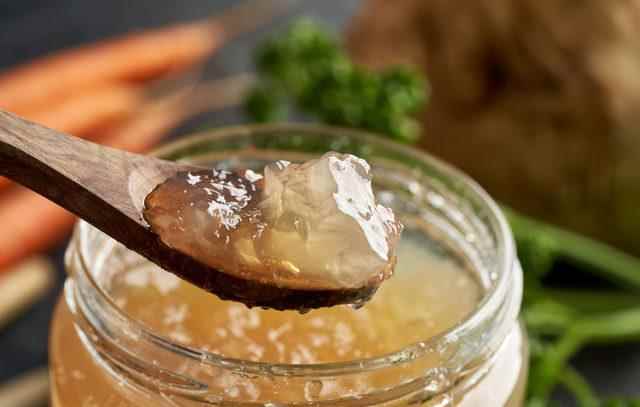Collagen is a type of protein. In fact, it is the most abundant structural protein in animals. A structural protein is one that forms the structure or framework of your cells and tissues. There are 28 known types of collagen, and type I collagen makes up 90% of the collagen in the human body.
Collagen is found in connective tissue, skin, tendons, bones and cartilage. It provides structural support to tissues and plays important roles in cellular processes. Connective tissue cells called fibroblasts produce and maintain collagen. As people age, their collagen breaks down, fibroblast function deteriorates, and collagen production slows. These changes, along with the loss of another important structural protein called elastin, lead to signs of aging such as sagging skin and wrinkles.
SHOULD I TAKE COLLAGEN SUPPLEMENT?
Your body naturally produces collagen, and you can consume it through sources such as chicken skin and fish skin and collagen supplements. Oral and topical collagen products, such as supplements and face creams, are popular for treating signs of aging such as wrinkles, skin moisture loss and joint pain.
You can buy collagen in powder, capsule and liquid form. You can take it as a supplement or add it to both hot and cold drinks and foods like oatmeal, yogurt, and energy balls. Healthcare professionals also use collagen and collagen-based materials in the field of medicine, including the treatment of wounds, burns, and diabetic ulcers. Additionally, cosmetic companies use collagen in products such as moisturizers and serums because of its moisturizing and hydrating properties.
WHAT CAUSES COLLAGEN LOSS?
As we age, collagen production naturally decreases. These changes lead to the characteristic signs of aging, such as wrinkles and dry, sagging skin. The integrity of collagen in the skeletal system also decreases with age, resulting in a decrease in bone strength.

While collagen loss and damage is inevitable as we age, certain dietary and lifestyle factors can accelerate this process. For example, smoking is known to degrade collagen and cause skin aging, wrinkles and loss of elasticity.
Excessive sun exposure also disrupts collagen production, so using sunscreen and avoiding excessive sun exposure can help prevent early signs of skin aging.
BEST NUTRITIONAL SOURCES WITH COLLAGEN
Collagen is found in all animal products, it is more concentrated in some parts of the animal such as the skin and joints.

Because your body naturally produces collagen from amino acids, you can support collagen production by making sure you get enough protein from foods like poultry, fish, beans, and eggs. Vitamin C is essential for collagen synthesis, so having low or deficient levels of vitamin C can result in impaired collagen production.
ARE THERE ANY BENEFIT OF TAKE A COLLAGEN SUPPLEMENT?
Studies have shown that taking collagen supplements can offer several benefits.
One of the most popular uses of collagen supplements is to support skin health. Research suggests that taking collagen supplements can improve certain aspects of skin health and appearance.

BEFORE TAKE A COLLAGEN SUPPLEMENT…
It’s important to remember that you don’t need to eat collagen or take collagen supplements to support your body’s collagen levels or bone health. In fact, adding enough high-quality protein, vitamin D, calcium, vitamin C, and zinc to your diet can help your body make collagen and maintain healthy collagen levels and bone tissue.
